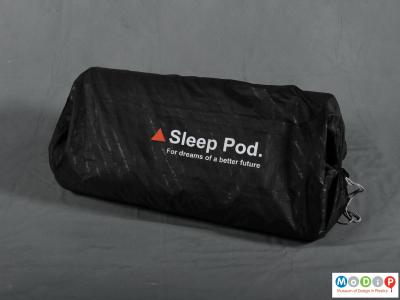Until the twentieth century, homeless people in the UK were typically treated harshly under government policy. Legislation, such as the 1977 Housing Act, has improved provision but the voluntary sector is still relied upon to provide vital support, particularly for single homeless people. A large number of organisations and initiatives have been set up to provide these specialist services but sadly, homelessness continues to grow. In 2021, national charity Crisis estimated that 227,000 people were homeless across England, Scotland and Wales.
The Sleep Pod emergency shelter (1) is one such initiative, intended to be made available to outreach teams and charities for distribution to rough sleepers that have been unable to access overnight accommodation through existing services. It was developed over a number of years by friends Ian Ashby, Justin Devereux and Pete Kenyon, who had been volunteering in refugee camps across Europe in 2015. On returning back to the UK, they saw rough sleepers experiencing similar problems and made the decision to try to design a simple, effective solution for preventing people from succumbing to exposure on the streets.
The lightweight, rain and wind-resistant temporary structures are made from a double-skin, aluminium foil backed polyethylene (PE) bubble-sheeting, wrapped in recycled low-density PE, and taped over a bamboo frame to form a long triangular form with one end sealed and the other a Velcro-controlled entrance. The material successfully insulates the body and can achieve an internal temperature of 5°C (an equivalent next-to-body temperature of 22°C) whilst external conditions drop to -16°C.
First launched in 2018, the pods are constructed by teams of volunteers through build workshops, adapted recently into ‘Build at Home’ projects due to Covid-19 social distancing. To date, 6500 have been made by over 3000 individuals and community groups. The charity maintain that the Sleep Pod is not a solution to the homelessness crisis and work hard to develop strong relationships with partner organisations equipped with the expertise and experience that can help inform where and when it is appropriate to give out Sleep Pods within their local areas.

